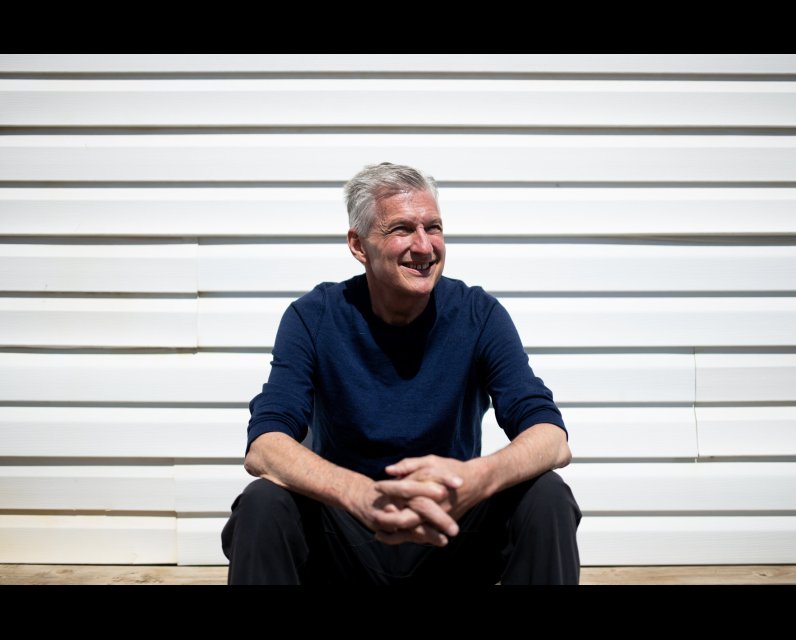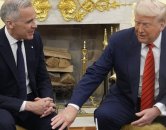Source Feed: Walrus
Author: Wendy Kaur
Publication Date: May 6, 2025 - 14:30
Poilievre Ran on Anger. Fanjoy Knocked on 15,000 Doors
May 6, 2025

O n paper, Bruce Fanjoy’s victory in Carleton wasn’t just unexpected—it was improbable, almost absurd. The Liberal candidate dethroned Pierre Poilievre, the Conservative leader and long-time occupant of the riding since 2004. The story becomes more remarkable when you look at who Fanjoy is. Before shifting to full-time parenting and volunteering, he held senior positions at major firms like Comcheq, Ceridian, and Deloitte, where he led groundbreaking initiatives—most notably, the Prism Project, which transformed payroll services nationwide. Campaigning on affordability, housing, and climate action, the retired businessman mounted a grassroots effort that won him over half the vote—despite ninety-one names crowding the ballot, a chaotic stunt engineered by electoral reform activists from the Longest Ballot Committee. Even Mark Carney couldn’t let the moment pass without acknowledging it. Midway through his victory speech, a supporter shouted Fanjoy’s name. “Yes, Bruce Fanjoy,” the prime minister said. “Fantastic. He will be a great MP.” I spoke to Fanjoy about what it took to pull off the upset and what comes next.
What drew you to politics, and what made you think you could go up against Pierre Poilievre?
This isn’t something I thought I would do. I’ve been someone who volunteered in the past on other campaigns. I care a great deal about my community—locally and nationally.
I can honestly say that Pierre Poilievre made me do this. I could see even years ago that this election, the one that has just taken place, was going to be of historic importance. Here in Carleton, we had a unique opportunity, and I felt a responsibility to challenge him. I wanted to be a voice for a riding that needed a fresh voice.
You defeated a man who built his brand on anger and disruption. What’s your brand, and why do you think it resonated more?
You’re correct in saying that Pierre has built his brand on anger. We countered with a very positive campaign. People have told me many times that I couldn’t be more different than Poilievre.
Was it primarily because of President Donald Trump’s tariff threats that voters felt they had to flip?
There were a lot of reasons. Certainly, the election of Donald Trump and his hostility—both economically and politically—to Canada helped to focus a lot of minds in Carleton, as they have across the country. But it was more than that. It’s fair to say that Poilievre’s complete body of work over twenty years was judged in this election.
Unlike Poilievre, you come from a background in marketing and community work, not politics. Was that your secret weapon?
It certainly helped that I wasn’t a career politician. I’ve had the opportunity to meet a lot of people over the years, and they’ve got to know me and see my values in action. I think my experience in business helped me to understand that Poilievre was not invincible. He went into the election with exactly the same number of votes that I had: we were tied at zero, except that he was not here, and he hadn’t accomplished anything. I was here, I was present all over the riding, and I had accomplished things outside of politics.
Did you run to win, or did you run to make a point—and at what moment did you realize you could do both?
I absolutely ran to win. But winning is a process, it’s not a moment. When we began this over two years ago, it was with the belief that there was a path to victory that may have been narrow but it wasn’t insurmountable. We immediately went about putting that work in. Over the course of time, more and more people began to believe as well that this was possible. By the time the election was called, there were a whole [lot] of people who believed it was possible, and that’s why over 500 volunteers showed up and stepped up in the first week of the campaign to help us finish it off.
Please describe the campaign you ran. I heard that you made it a point to knock on as many doors as you could.
Before the campaign started, I had knocked on more than 15,000 doors and had thousands of conversations. Once the campaign was underway, I had a lot of people working with me: every day, we were sending multiple teams out to neighbourhoods across the riding—canvassing, identifying, and persuading new supporters. It was a very high-energy group. I had an extraordinary group of volunteers and staff, and I think it’s fair to say that everyone approached this campaign like we were on a mission. We knew how great the stakes were for the country, and that in this one riding of Carleton, we could send a loud and clear message about how we want politics to be done in Canada. They want people to come together and make this country work. They were tired of Poilievre’s negative and divisive approach.
Was there any moment in the campaign when you believe Poilievre’s team underestimated you?
They underestimated us every day, until the day the Globe and Mail and the Toronto Star both reported that he was pulling in resources from across the country to defend Carleton. That’s when they understood they were in a race.
We weren’t hiding it at any point in the past two years. I think they just never believed that what we did was possible.
Carleton was targeted by “The Longest Ballot” protest. What are your views on this?
I don’t think it was productive at all. It just caused a great number of people a great deal of inconvenience. Most importantly, I don’t think it had any impact on the outcome of the election in Carleton.
The fact that Carleton voters have long been Conservative makes this win a strategic one. Do you think your victory is a referendum on Poilievre’s politics or a sign Canadians are tired of combativeness in general?
I think it’s both those things. The people of Carleton aren’t much different from people across the country: they’re hard-working people who care about our neighbours and our country, and who want to build a future for young people. But one of the things I found in my conversations was that, although there was a tradition of Conservative support, it was rested on a memory of how Conservatives used to be rather than how it is under Poilievre. I didn’t encounter a great deal of affection for him in particular: it was more of the Progressive Conservative tradition that people identified with. But they also recognized that that’s not the party anymore, so they were prepared to support me.
What do you think Poilievre misunderstood about Carleton and the mood of the electorate?
I think he took Carleton for granted. That was a big miscalculation on his part, and the voters of Carleton let him know that.
Do you think your win will make party leaders rethink how they approach “safe” ridings?
It doesn’t matter who you are—you need to win your riding. I think party leaders are traditionally treated a little differently, because people understand that they have other responsibilities as well, and that would have applied to Poilievre. But the fact is, in twenty years of opportunity, ten of which were in government, he’s accomplished remarkably little. He didn’t get the benefit of that doubt, and I think that was the right call by voters.
You’ve already touched on this, but you said you’d be more available to constituents. Was that something people in Carleton felt was lacking under Poilievre, given his focus on leading the party?
When you’re the representative of a riding, people are looking for evidence that you’re present, that you’re listening, and that you care. Those were not things that he did for Carleton, and it remains to be seen if he’ll do that in another riding. Service has been a common theme in my life, and it comes very naturally to me to look at a situation and to say: “How can I be of help?” I’ve been doing this for years, and this is now just a new way of doing it.
If you were advising the Conservative Party right now, what would you tell them about what went wrong?
I don’t think they’re going to ask for my advice [laughs], but I would say it’s time to respect the Charter of Rights and Freedoms, pull together a credible plan for the environment, and stop the nonsense in Parliament. The post Poilievre Ran on Anger. Fanjoy Knocked on 15,000 Doors first appeared on The Walrus.
Despite the ongoing trade war, U.S. President Donald Trump and Prime Minister Mark Carney appeared to get along well during their first face-to-face meeting at the White House.
May 7, 2025 - 13:00 | Amy Judd | Global News - Canada
Ottawa police fraud squad detectives have arrested two people who posed as "bank fraud inspectors" in a series of recent incidents, Read More
May 7, 2025 - 12:50 | Norman Provencher | Ottawa Citizen
Ontario Health Minister Sylvia Jones says the government’s strategy in handling measles outbreaks across the province is working as national cases rise to the highest levels in almost three decades.Ontario, which clocked in more than 1,200 measles cases last week, has not given a dedicated news conference on the issue, unlike Alberta and Nova Scotia. Interviews with Ontario’s Chief Medical Officer of Health Kieran Moore have been sporadic and he has not appeared alongside Ms. Jones to speak publicly on the issue.
May 7, 2025 - 12:47 | Laura Stone | The Globe and Mail



Comments
Be the first to comment